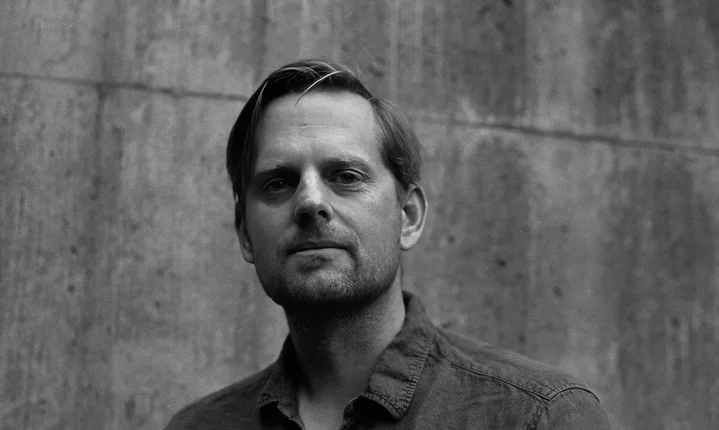Cal Poly Humboldt Photography lecturer Justin Maxon. | Photo: Cal Poly Humboldt
###
PREVIOUSLY:
###
Press release from Cal Poly Humboldt:
A Cal Poly Humboldt lecturer Justin Maxon is among the 100th class of Guggenheim Fellows, including 198 distinguished individuals working across 53 disciplines. Chosen through a rigorous application and peer review process from a pool of nearly 3,500 applicants, the Class of 2025 Guggenheim Fellows was tapped based on both prior career achievement and exceptional promise. As established in 1925 by founder Senator Simon Guggenheim, each Fellow receives a monetary stipend to pursue independent work at the highest level under “the freest possible conditions.”
To see the full list of the 2025 Fellows, go to gf.org.
“Being named a Guggenhiem Fellow is an honor beyond what words can express. I’ve gone from disbelief to a level of emotion I didn’t know was possible. It’s incredibly humbling to be named a Fellow alongside such inspiring individuals, especially those whose work I’ve admired for years,” says Maxon.
Maxon is an award-winning photographer, educator, and social practice artist who grew up between Hoopa Valley and Eureka in Humboldt County. He considers his practice interdisciplinary and collaborative, combining photography with video, performance, narrative, and sculptural forms to create dialogical spaces that foster inclusivity, community participation, and the value of person and place. Maxon often develops projects and community networks that provide individuals—often marginalized from dominant spaces—opportunities to become resources for themselves and their communities, he says.
His fellowship project, Decolonizing Care, is an applied research project that builds on his work for a New York Times Opinion piece, a collaboration with Judith Surber that examined the systemic failure in care for fentanyl addiction through the story of one family—the Surbers—on the Hoopa Valley Reservation. The project will develop training materials for medical professionals on the West Coast to establish best practices for fentanyl addiction treatment. The project seeks to build consensus among a wide range of stakeholders impacted by the fentanyl epidemic, including medical personnel, law enforcement, judges, rehabilitation workers, and drug users.
Through interactive presentations and facilitated sessions, participants will create community-driven policy recommendations, formalized through signed agreements and shared publicly via press releases, helping to amplify a unified, community-informed response to the crisis. A traveling exhibition—hosted at hospitals and health centers—will invite healthcare providers and patients into reflective, dialogical spaces designed to educate and spark conversation.
Maxon has won two first-place prizes from World Press Photo, as well as the 1492/1619 American Aftermaths grant, the Aaron Siskind Foundation Fellowship, and the Alexia Foundation Professional Grant. His work has been exhibited at institutions such as the Museum of Chinese in America, the Museo de Arte Acarigua-Araure in Venezuela, the Bermuda National Gallery, the Morris Graves Museum of Art, the Wave Pool Gallery during the FotoFocus Biennale, and the Singapore International Photography Festival.
The 100th class of Fellows is part of the Guggenheim Foundation’s year long celebration marking a century of transformative impact on American intellectual and cultural life. In addition to appointing its newest class, the Foundation also launches a refreshed brand identity and website this month and will present a special exhibit later this year in collaboration with The New York Historical, highlighting rarely-seen treasures from its vast archive.
In all, 53 scholarly disciplines and artistic fields, 83 academic institutions, 32 US states and the District of Columbia, and two Canadian provinces are represented in the 2025 class, who range in age from 32 to 79. More than a third of the 100th class of Fellows do not hold a full-time affiliation with a college or university. Many Fellows’ projects directly respond to timely themes and issues such as climate change, Indigenous studies, identity, democracy and politics, incarceration, and the evolving purpose of community. Since its founding in 1925, the Guggenheim Foundation has awarded over $400 million in fellowships to more than 19,000 Fellows.

CLICK TO MANAGE